Has the Olympics been a success for Brazil?
- Published
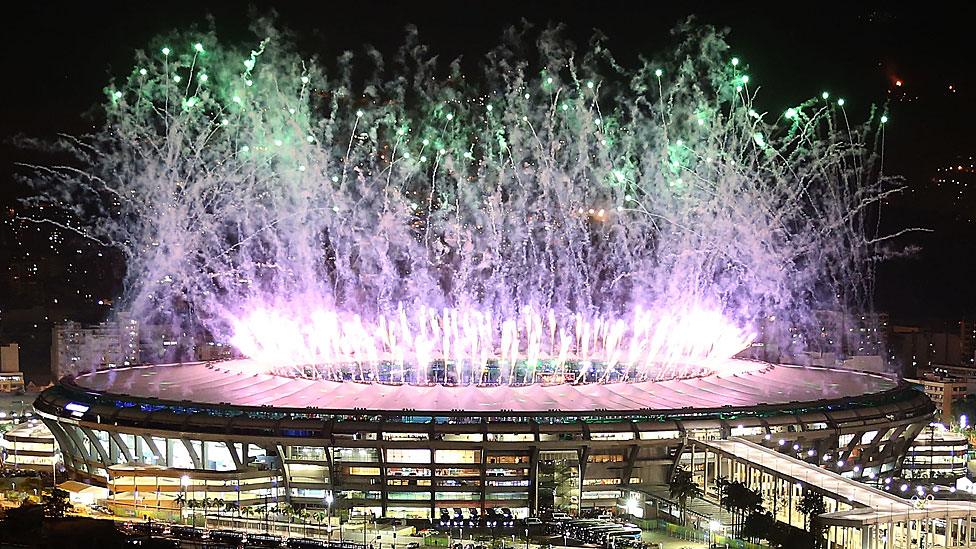
With the Olympics, and the World Cup before that, Brazil has shown it can stage mega sporting events
From a purely sporting perspective, Rio 2016 has been an extraordinarily successful Olympic Games.
The sporting competition has been of the highest standard in the pool, on the track and in the gym.
There have been almost 100 World and Olympic records broken in what has, thus far, been a relatively drugs-free Games.
Indeed, for the second time in two years, Brazil has shown it can successfully stage a major international sporting jamboree.
But how many Brazilians were engaged by, or felt part of, the Rio Olympics is much harder to judge.
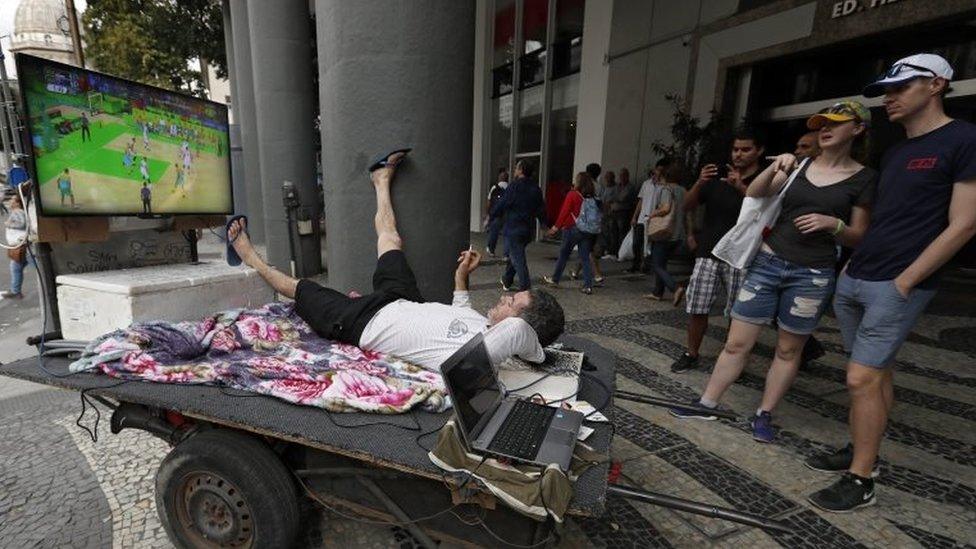
Some Brazilians were determined not to miss any of the action
At open-air events or fan zones in the old port areas of Rio, there have been huge gatherings of several thousand locals, especially at weekends or when the big screens are showing Brazil playing football or volleyball, two of the most popular sports here.
This is an uplifting sight for two reasons.
These areas are often regenerated parts of the city that were previously too dangerous or dirty to visit and it also suggests that Brazilians have, to an extent, been bitten by the Olympic bug.
The reality at the many Olympic sports venues dotted around Rio has been starkly different.
Many stadiums have sometimes felt half full, even when officials had announced they were sold out.
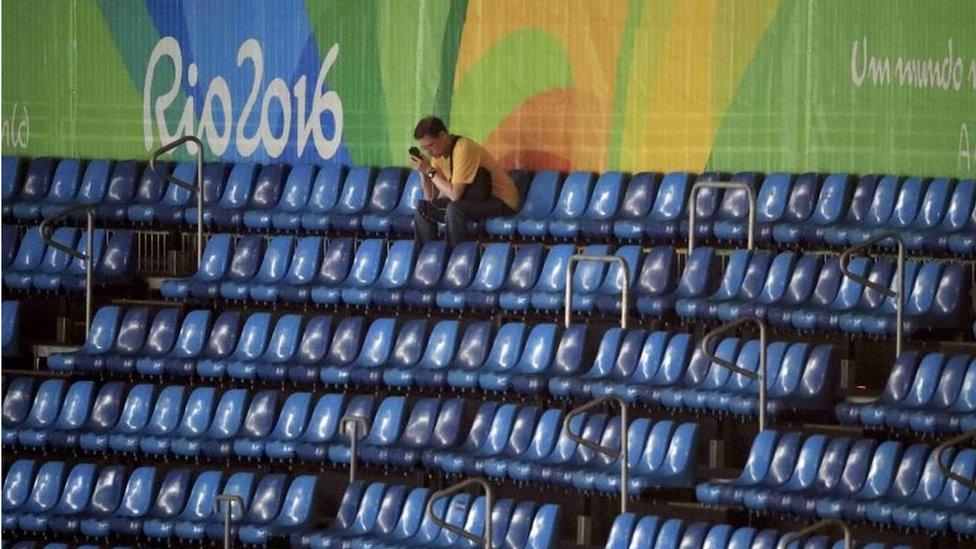
There have been empty seats, especially in qualifying rounds
There have been thousands of empty seats at the later stages of the tennis tournament, athletics finals and even the beach volleyball.
The volleyball games were held on Copacabana beach, which is about as convenient a location to the amenities and tourist hotspots of Rio's south zone as you can get.
Olympic officials, when pressed, admit that embarrassing corporate no-shows - sponsors who do not use or have not distributed their full allocation of tickets - are thought to be responsible for many of the empty-looking stands.
Brazilians not attending sports about which they are not traditionally enthusiastic, like hockey, rugby or badminton, also account for many of the gaps.
More often than not, locals blame high ticket prices, with some tickets for the most popular events going for 900 reais ($280; £215) which is more than the monthly minimum wage in Brazil.
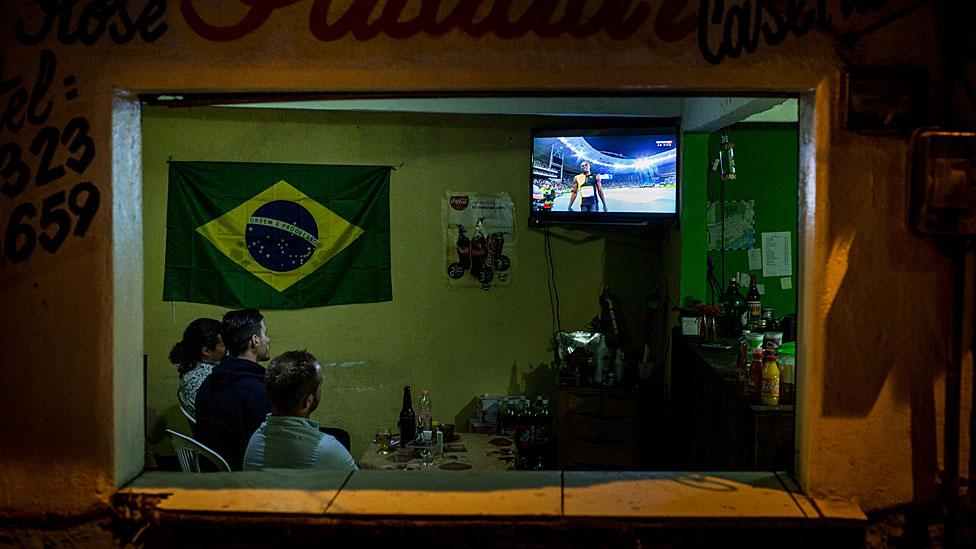
Those who could not afford tickets watched in bars
Attending the Olympic Games in person has simply been beyond the means of many Cariocas, as Rio residents are known.
Sailing concerns
Coming into Rio 2016, some observers had predicted a litany of problems that could each contribute to derailing the Games; from the appalling water quality in the sailing venues of Guanabara Bay, to the Zika virus, to the critical transport infrastructure that was finished just in time.
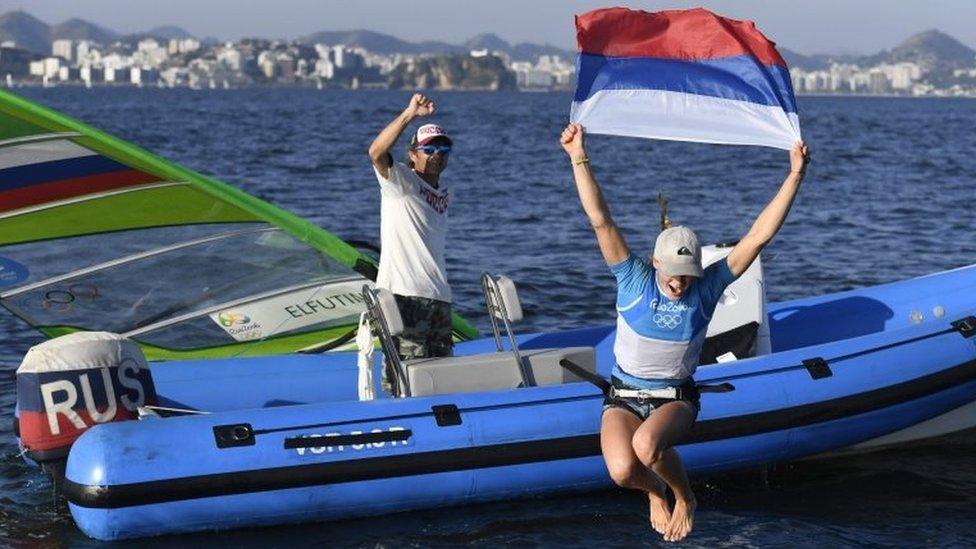
Few athletes were as keen as Stefaniya Elfutina to be in contact with the water in Guanabara Bay
While such an apocalyptic scenario was never really likely, not everyone is happy.
Despite the close attention of spotter helicopters to detect floating rubbish and eco-boats to remove the flotsam, several competitors complained bitterly about plastic bags and other waste impeding their progress in the races in the later stages of the sailing events.
More seriously, at least one team coach, Belgium's Will van Bladen, said that one of his competitors, Evi van Acken, was denied her chances of winning a medal when she caught dysentery.
The coach alleges it was from the huge amounts of untreated sewage in the bay.
Logistical problems
Eighty-five-thousand troops on the streets of Rio have helped to keep this notoriously violent city peaceful, at least in those areas where sport is going on or where the tourists venture.
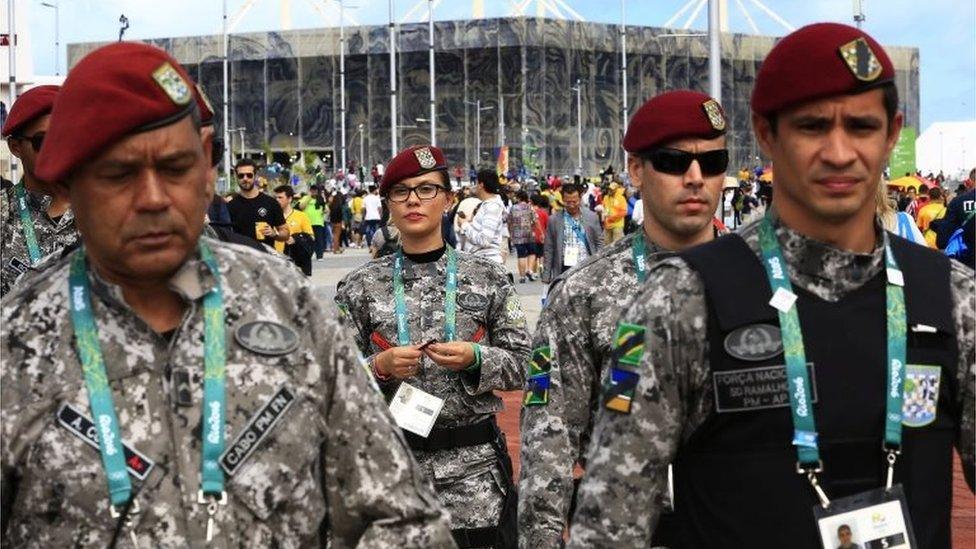
Tens of thousands of police and soldiers were deployed in Rio
Privately, Olympic bosses admit that hey have sometimes "dropped the ball" and it has been a challenge running the Games in a city where too much was ready too late and where having four distinct sporting venues situated around the city has presented its own logistical problems.
But Mark Adams, Director of Communications at the International Olympic Committee, says that there are no regrets in choosing Rio.
"What people really need to remember is that we are in a country in the middle of a serious political economic and political crisis but it's been worth it," Mr Adams says.
"If the Olympic Games are about one thing it's about spreading these values around the world. It's worked in South America, so why not Africa next?"
For the past two weeks, Brazilians have appeared to forgot about the many wider problems in the country, including a deep funding crisis facing the forthcoming Paralympics.
They have enjoyed the fantastic medal successes of their sailors, athletes and judokas but you get the distinct feeling that Brazil won't be bidding to host another global mega event for some time.